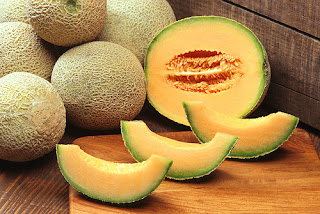SIGH.
On days like today, I'm not even sure if "WTF!?" truly captures my reaction to the news. I need a new expression to reflect my complex emotional state after hearing that Canada has officially pulled out of the Kyoto Protocol. NDP Environment critic Megan Leslie put it best when she said, "it's like we're the kid who's failing the class, so we have to drop it before that happens", which as we know from our school days makes everything better.
I don't actually want to rant about this, since I don't want to make myself more miserable than I already am, so instead I'd like to draw your attention to the problem of air pollution in Beijing. Why? Because it gives us present-day proof of how screwed we are if we don't do something about the state of the environment. Last week, the smog in China's capital city was so bad that highways were closed and flights were cancelled because visibility was limited to a few hundred metres. The U.S. Embassy's smog index actually exceeded its upper limit. What's worse than a "hazardous" reading? Critical? Life-threatening? Deadly?
It saddens me that so many people have gotten caught up in debating the merits of measuring one particle vs. another (the Americans like the PM 2.5 standard, the Chinese like PM 10), not because it doesn't matter (it does), but because it detracts from the real problem: the air in northeastern China is a chronic and very dangerous issue. It's possible that breathing in that bad air will reduce life expectancy by five years. What are we going to do about it?
We can start by thinking about the main contributors to air pollution in the Beijing area: vehicles, coal-fired power plants, and industry. While China is on the other side of the planet, I actually feel quite capable of helping to bring about change in these areas by remembering the link between my actions and their consequences:
- cars: I admit to owning one. However, it's very fuel-efficient, and I only drive it once or twice a week. If I had to give it up, I'd probably adjust pretty quickly, never look back, and roll around in all the money I'd be saving. The best part? I would be an excellent role model, showing how great my quality of life can be without having to own a car.
- coal: I am a huge supporter of clean and renewable energy and its ability to reduce our dependency on fossil fuels, thereby mitigating climate change. The more we invest in mixing alternatives into the conventional electricity grid, the sooner we'll develop more efficient green power generation technologies, which will hopefully lead to the whole world turning to renewables.
- stuff: I avoid buying useless crap, especially useless crap made in China. As for those items that are practical and necessary, I try to find the ones that are made domestically, and made without plastic (since so much of it comes from China). Our consumer culture is partially responsible for the dirty clouds billowing out of Chinese factories, and I want no part of it.
My lifestyle impacts my home and work; my city, region, province, and country; and in many ways, the whole planet. The Conservative government believes it is justified in shirking responsibility; I could not disagree more and refuse to allow this country's rapidly declining international reputation to smear my own.
Photo of F grade used under Creative Commons from amboo who? (flickr).
Photo of Beijing traffic used under Creative Commons from poeloq (flickr).










